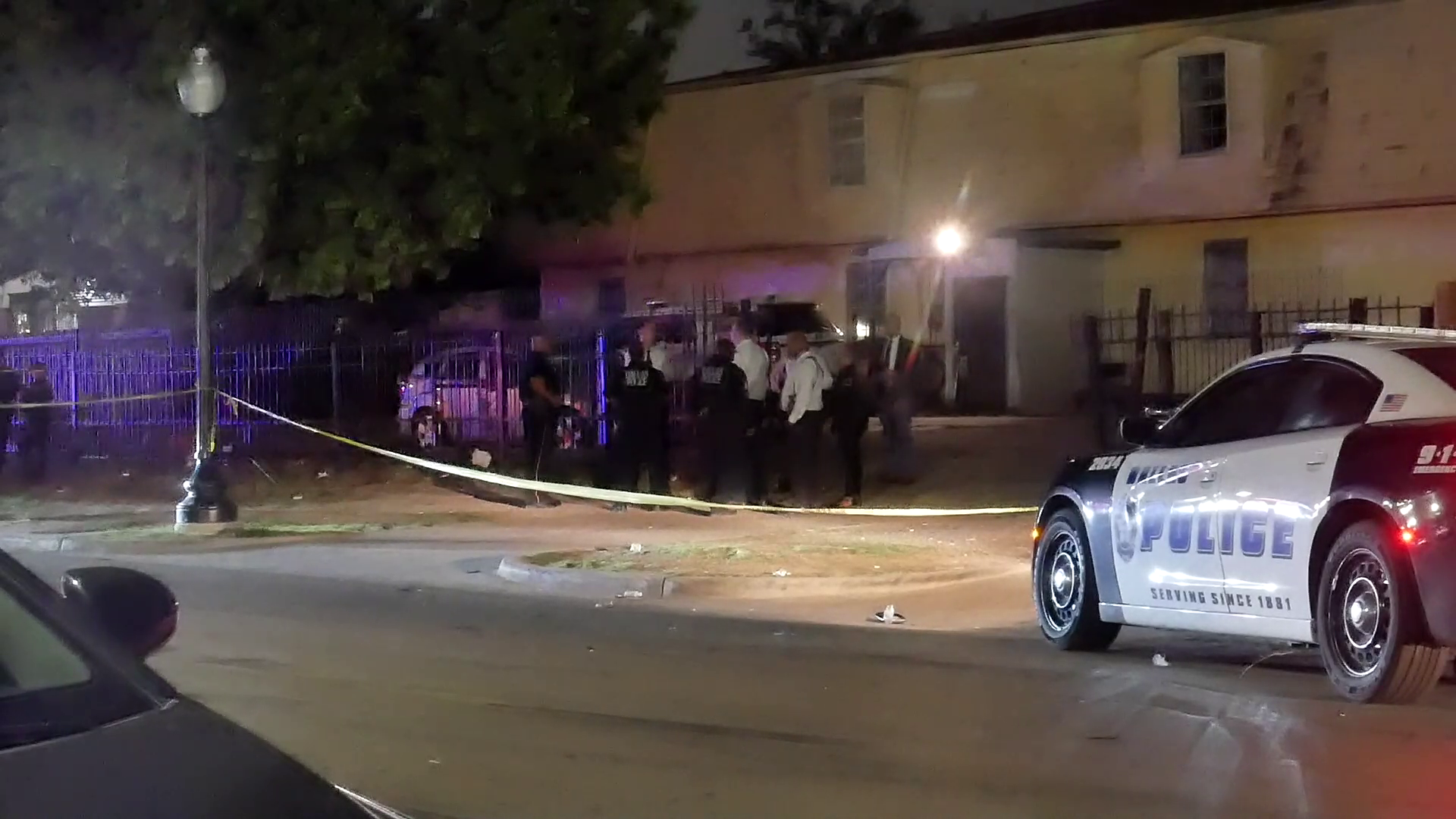James Stuck was a four-sport college athlete before his vehicle was blown up while serving with the U.S. Army in Iraq in 2005.
“I lose half my right leg and all that's taken away from me in the blink of an eye,” said Stuck. “ Yes, there are reasons for being down, there are reasons for crying and I'll tell you, after I got injured, that's probably some of the hardest times I ever cried.”
While recovering from his right leg amputation at Walter Reed Army Medical Center, Stuck asked himself how he would get back to living an active life.
“First, I gotta learn to walk again. OK, I can walk. Now I have to learn to run again. OK, cool,” said Stuck, going through his thought process while getting back to that active lifestyle.
“Then it was, alright I gotta jump rope. Now, I gotta lift [weights]. I just gotta get back into it and it's baby steps - it sucks. But it's baby steps.”
Those steps led him to sit-down volleyball, which is team volleyball adapted for athletes with a disability. Volleyball players sit on the floor and volley the ball over a lowered center net.
That variation is just one of the many alternative sports disabled veterans were encouraged to learn and play at the Movin’ Mavs Muster at the University of Texas at Arlington on Wednesday.
In addition to volleyball, the event featured wheelchair basketball as well as archery.
“Having some type of activities like this, it gives us that boost of confidence and being able to come out and do what we did prior to our injury,” said U.S. Army Captain Dawn Graham who suffered a knee injury while serving in Kuwait.
Local
The latest news from around North Texas.
Stuck said it’s critical to give injured vets an outlet, “Rather than sitting in a hospital, not so much feeling bad about themselves, but thinking about their injuries or their buddies, just trying to get them out and back into daily life and being active again.”
Getting active again is not just about the physical but also the mental exercise. Dr. Alexa Smith-Osborne, associate professor with the UTA School of Social Work, calls it the “mind-body connection.”
As the veterans learn new ways to play familiar sports, they’re re-wiring their brains and teaching themselves what's possible despite their disability.
“That doesn't mean ignoring barriers though or being in denial, it means assessing your environment for barriers and figuring out -- coming up with creative solutions for walking around them, jumping over them or otherwise adapting to them,” explained Dr. Smith-Osborne.
She says that the injured military community is under-served, which is only compounded in Texas, where Smith-Osborne says the mental health community is also under-served.
“We need to have more civilian social workers who are expert in the military culture and the treatment of prevalent military injuries and in the military family throughout our communities,” said Smith-Osborne.
UTA is trying to fill that void. The School of Social Work offers a graduate program in military social work – the only of its kind in the state, according to UTA officials.
Beginning this fall, graduates will be trained in providing clinical services to the under-served military community, which can sometimes be a tough sell to those very service members who need help.
“Military members often choose not to seek help from their military treatment providers or the veterans administration for reasons of confidentiality and concerns about stigma,” said Dr. Smith-Osborne.
It’s a problem that she says has only grown as medical technology has evolved.
“More war injuries are survivable due to enhanced medical and transportation technology available to our troops as well as enhanced technology to provide body protection,” she said.
With more troops coming home disabled, Stuck says there’s no time more important than now to give those injured veterans options, like sports.
“It’s huge, I can’t fathom how important it is,” said Stuck.
Dr. Smith-Osborne adds that U.S. service members are as well-equipped anyone to take on a new sense of normal and realize their new potential. “They already have the watch words – be flexible, adapt, overcome,” she said.
A thought echoed by people like James Stuck through their resilience.
Stuck said, "It's not so much 'can I?' It's, 'let's get there and try.'"



